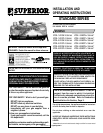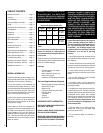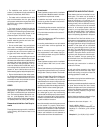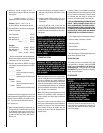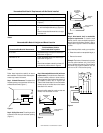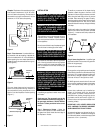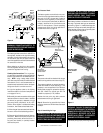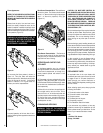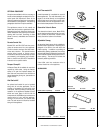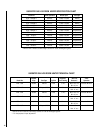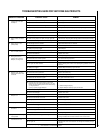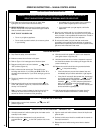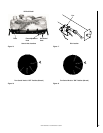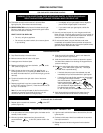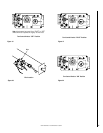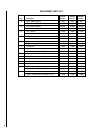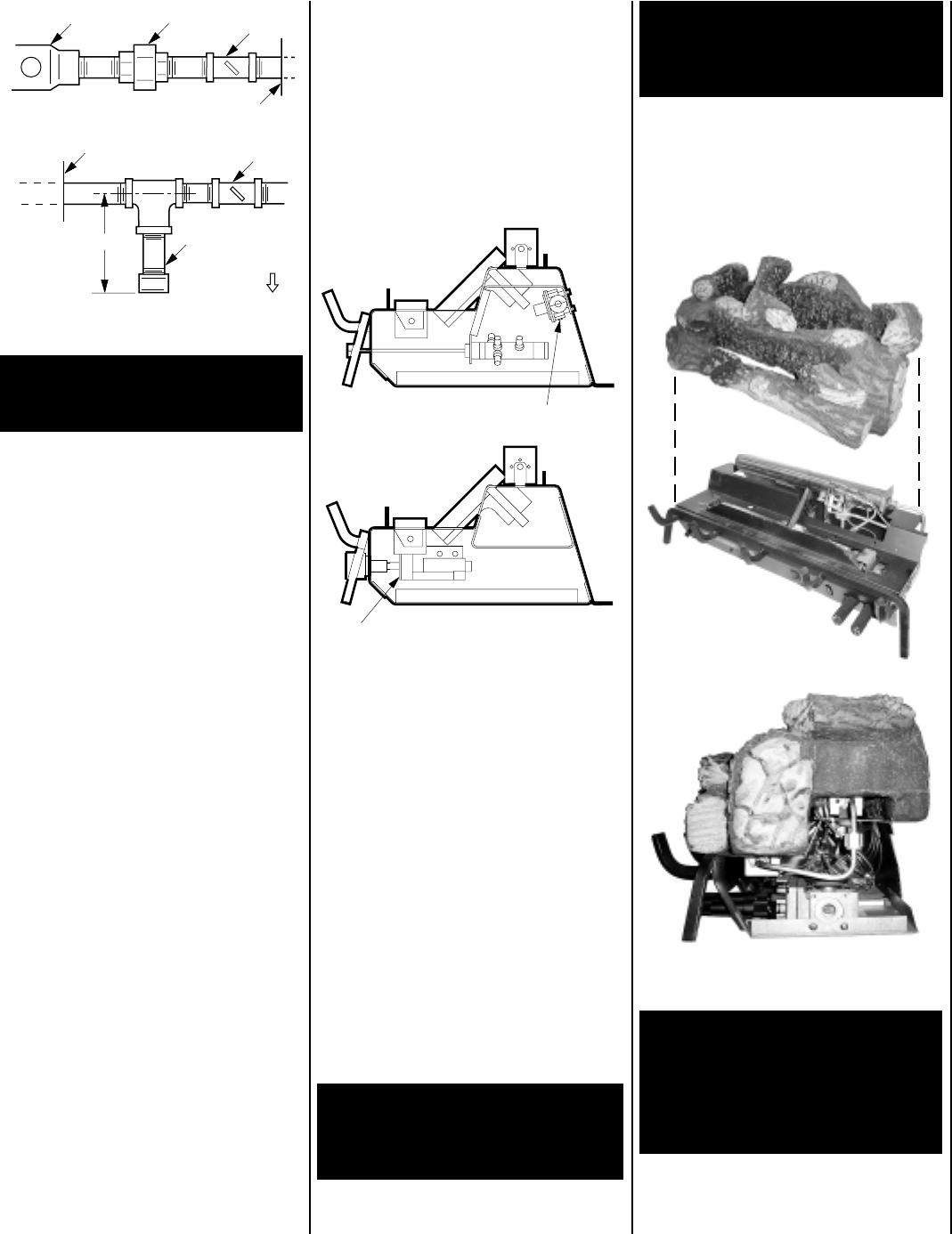
NOTE: DIAGRAMS & ILLUSTRATION NOT TO SCALE.
7
Union
Regulator
Fireplace or
Firebox Wall
Wall
Shut-Off
Key
3"
Manual
Shut-Off
Valve
Fireplace or
Firebox Wall
Sediment
Trap
Down
Each heater includes a unitized set of ceramic
fiber logs. The heater and logs are assembled
as shown in
Figure 11
. Handle these logs with
great care. The logs can be easily damaged, but
when handled properly they can provide years
of performance and enjoyment.
Manual Valve
Pressure Test Point
Millivolt Valve
Pressure Test Point
On Front Of Valve
Periodically verify proper positioning of all logs.
Figure 11
Millivolt Log Set
Shown, Manual
Similar
Figure 9
WARNING: CONNECTING DIRECTLY TO
AN UNREGULATED PROPANE TANK MAY
CAUSE AN EXPLOSION.
The heater gas inlet connection is 3/8" NPT at
the regulator, located on the right side facing
the heater. If a left side connection is required,
the connection pipe may be piped under the
rear of the appliance to end at the left hand side
for connection to the inlet.
When tightening up the joint to the regulator
hold the regulator securely with a wrench to
prevent the regulator from moving.
Checking Gas Connections: Turn on gas sup-
ply and test for gas leaks using a gas leak test
solution (also referred to as bubble leak solu-
tion). NOTE: using a soapy water solution
(50% dish soap, 50% water) is an effective leak
test solution, but it is not recommended, be-
cause the soap residue that is left on the pipes/
fittings can result in corrosion over time.
A. Light the appliance (refer to the lighting
instructions label in the control compartment
or on pages 12 or 14).
B. Brush all joints and connections with the gas
leak test solution to check for leaks. If bubbles
are formed, or gas odor is detected, turn the
gas control knob (off/pilot/on) to the “OFF”
position. Either tighten or refasten the leaking
connection, then retest as described above.
C. When the gas lines are tested and leak free,
be sure to rinse off the leak testing solution.
D. Observe the individual tongues of flame on
the burner. Make sure all ports are open and
producing flame evenly across the burner. If
any ports are blocked, or partially blocked,
clean out the ports.
WARNING: DO NOT PLACE ANY LAVA
ROCK ON LOGS OR BURNERS. THIS MAY
CAUSE SOOTING. ONLY PLACE LAVA
ROCK ON FLOOR OF FIREPLACE.
WARNING: FAILURE TO POSITION THE
PARTS IN ACCORDANCE ITH THESE DIA-
GRAMS OR FAILURE TO USE ONLY PARTS
SPECIFICALLY APPROVED WITH THIS
HEATER MAY RESULT IN PROPERTY
DAMAGE OR PERSONAL INJURY.
Gas Pressure Check
The heater regulator controls the burner pres-
sure which should be checked at the pressure
test point (1/8" NPT plugged tap) located at
the bottom of the regulator (on manual mod-
els) or on the control valve itself (on Millivolt
models), identified A for the manifold side
and E for inlet pressure. Ensure operatilng
pressures are within the limits specified in
the techinical chart on page 10.
Figure 10
The pressure should be checked with the gas
heater burning and the control set to high (3).
The pressure regulator on manual models is
preset and locked to avoid tampering. If the
pressure is not as specified in the Technical
Details Chart on page 10, replace the regulator
with P/N 110351 for natural gas and P/N
110352 for propane (L.P.G.) heaters.
Replace the test point plug after pressure
measurement ensuring no gas leaks.
Step 3. Secure the log set within the firebox
using the screws and drilled holes discussed
in Step 2.
Step 4. Assembling the Logs
WARNING: DO NOT ADD EXTRA LOGS OR
ORNAMENTS SUCH AS PINE CONES, VER-
MICULITE OR ROCK WOOL. USING THESE
ADDED ITEMS CAN CAUSE SOOTING.



